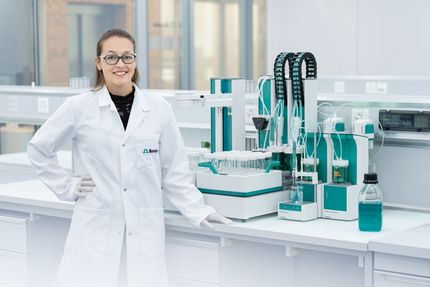To use all functions of this page, please activate cookies in your browser.
my.chemeurope.com
With an accout for my.chemeurope.com you can always see everything at a glance – and you can configure your own website and individual newsletter.
- My watch list
- My saved searches
- My saved topics
- My newsletter
Gertrude B. ElionGertrude Belle Elion (January 23, 1918 – February 21, 1999) was an American biochemist and pharmacologist, and a 1988 recipient of the Nobel Prize in Physiology or Medicine. Born in New York City to immigrant parents, she graduated from Hunter College in 1937 and New York University (M.Sc.) in 1941. Unable to obtain a graduate research position due to her gender, she worked as a lab assistant and a high school teacher, before becoming an assistant to George H. Hitchings at the Burroughs-Wellcome pharmaceutical company (now GlaxoSmithKline). She never obtained a formal Ph.D., but she was later awarded an honorary Ph.D from George Washington University. Product highlightWorking alone as well as with Hitchings, Elion developed a multitude of new drugs, using innovative research methods that would later lead to the development of the AIDS drug AZT. Rather than relying on trial-and-error, Elion and Hitchings used the differences in biochemistry between normal human cells and pathogens (disease-causing agents) to design drugs that could kill or inhibit the reproduction of particular pathogens without harming the host cells. Elion's inventions include:
In 1988 Elion received the Nobel Prize in Medicine, together with Hitchings and Sir James Black. Other awards include the National Medal of Science (1991) and the Lemelson-MIT Lifetime Achievement Award (1997). In 1991 she became the first woman to be inducted into the National Inventors Hall of Fame. Gertrude Elion died in North Carolina in 1999, aged 81. She had moved to the Research Triangle in 1970, and for a time served as a research professor at Duke University. She was unmarried. Quotes
Awards
Categories: American biochemists | Pharmacologists |
|||
| This article is licensed under the GNU Free Documentation License. It uses material from the Wikipedia article "Gertrude_B._Elion". A list of authors is available in Wikipedia. |







